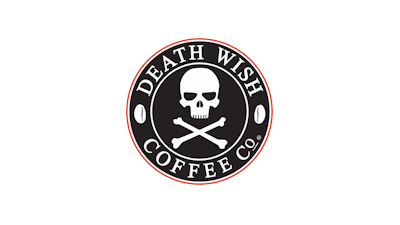Statistical process control (SPC) charts have been around for decades. These tools use statistical methods and sampling programs to help plant and operational leaders understand and control variability in their manufacturing process. But, according to TheManufacturer.com, nearly 61% of manufacturers are using pen and paper within their facilities - leading to manual record entry in SPC charts and graphs, making it nearly impossible to view trends over time.
The main objective of SPC is to manage operations better and reduce waste and rework. Plant and operations managers benefit from SPC because it gives them the concrete information and clear markers needed to stop a line and fix problems before things spin out of control.
But, if an organization is collecting critical SPC-related data such as weight checks using pen, paper, and/or manual data entry, they’re more likely to encounter issues like:
- Labor-Intensive Data Entry
- Delayed Decision-Making
- Human Error
- Product Loss
- Overpack
- Out-of-Spec Scrap
All of these mistakes are costly, impacting your bottom line, cutting into profits, and putting you in a position of noncompliance or at the risk of a costly recall.
Digitizing paper-based data collection processes and capturing automated data streams from machines and sensors (such as scales) insert real-time visibility into plantwide operations. By unifying data from multiple sources, manufacturers can empower frontline workers to take decisive corrective action and provide data-driven insights to management. The resulting improvements will drive top-line growth, and maximize throughput and yield within the facility.
When SPC data charted in real-time is combined with alerts triggered if processes begin to trend out of spec, Operations can be proactive while the line is running — versus catching a potentially costly mistake when the run is already done.
In this case study, we’ll explore how four companies used SafetyChain to collect and trend weight data in real-time, empower frontline workers to take decisive action, and provide data-driven business insights to aid management in driving top-line growth.
Compact Industries Finds 40,000 Pounds of Missing Coffee In Product Overpack
Founded in 1963, Compact Industries, Inc. began as an instant coffee, cocoa, and soup packer. As the business grew, Compact Industries expanded its capacity to accommodate contract-packing services for powdered beverages and dry food products. Today, the organization specializes in manufacturing powder food service beverages, including instant hot cocoa, coffee, cappuccino, frappes and steamers, fruit-flavored drinks, teas, gelatin mix, pudding, and pie filling.
Where’s The Coffee?
Internal checks alerted the Director of Quality Assurance, Craig Conrad, and his team that their inventory was off by approximately 40,000 pounds. Without access to real-time data, it was hard to determine where the product went and how to correct any potential issues.
12% Overpack Discovered
With SPC charting, trend analysis, and compliance alerts in SafetyChain, the Compact Industries quality team was able to show their production counterparts they were running out of spec and giving away significant product via overpack — upwards of 12% on certain products.
With the insights retrieved through SafetyChain, the quality and compliance teams were able to work together to uncover and resolve equipment issues, and they can now run in spec consistently. Compliance alerts turned on in SafetyChain give leadership alerts when overpack occurrs, allowing them to fix the issue as it’s occurring and eliminate product giveaways.
Business Impact: $120K In Savings
Identifying and correcting overpack in real time has identified where the 40,000 pounds of “missing” coffee went. As a result, Compact Industries has saved an estimated $120,000 in product giveaways per month.
Digital Weight Checks Save Death Wish Coffee $5.4M in Overpack Savings
Death Wish Coffee produces the world’s strongest coffee in their upstate New York production facility. Founded in 2012, their ground and whole bean coffees are USDA-organic, Fair Trade Certified™, and have double the caffeine of an average cup of coffee. With rapid growth across the last few years, production has ramped up to keep up with both direct-to-consumer and retail channels.
Internal Audits Alert to Missing Product
An internal audit indicated that some product was unaccounted for in the supply chain. While the Director of Quality, CJ DeLuca, knew this was most likely due to an overpack issue, the production facility didn’t have a method in place to effectively monitor and pack weight controls in real-time. At the time, weight checks were being done every 30 minutes on paper, which made it impossible to analyze, trend, and identify improvements.
750 Pounds of Overpack Discovered
Moving all weight checks and SPC charting to digital checkpoints in SafetyChain allowed the team to collect and see product weights in real time and empowered operators with flexibility and freedom to adjust in-process operations while the line was running.
As a result, the team discovered they were over-packing coffee by an average of one ounce per bag.
Business Impact: $5.4M In Savings
Death Wish Coffee continued to monitor pack weight dashboards in SafetyChain daily and incorporated their findings as a discussion point in management meetings. Visibility into this overpack issue is enabling operators to confidently adjust and tighten specs as needed, and has led to an estimated $5.4M in saved product over-pack.
Digitizing SPC Charting Helps MSI Express Save $256,000 in Product Savings
MSI Express is a single-source contract manufacturing and packaging company. The company has a breadth of capabilities in all consumer packaged goods (CPG) categories, including dry foods blending, liquid packaging and bottle filling, vitamin and supplements, dry pet food packaging, and secondary packaging. In addition, they help a growing list of Fortune 500 companies and entrepreneurs streamline their supply chain and keep costs down.
Manual SPC Charting Limits Visibility into Weight Trends
In their Burhman, Indiana plant, MSI Express packages overcaps filled with confectionery products for a well-known retail brand. They used to record all their weight checks on paper, and during a product run, a weight-checker ensured that no light or heavyweights made it to the customer. Without access to real-time data and SPC charting, their goal was simply to comply with spec guidelines -- not maximize yield. As a result, they were unaware of any potential overpacking because they couldn't chart data recorded by operators during routine line checks.
30,000 Pounds of Product Overfill Discovered
Product weight spec is between 10.5 g and 14g with a target of 11.5g per product piece. Once SPC was digitized and the team could physically see the weight trendlines on a dashboard, it was discovered that while the line started on target, by mid-shift, the weight was averaging 13.5g. This meant 27,000 pieces of product were being overfilled by 2g of product per shift, which equals more than 30,000 lbs of product giveaway each year.
Business Impact: $256,000 in Product Savings
With SafetyChain, SPC charting for weight control records has been implemented across MSI Express’ business network. The MSI Express team now has leadership review during the production run to ensure product weights are optimized, that rejected product percentages are tracked and managed appropriately, and that record sign-off occurs to demonstrate compliance to the targets in place on record submissions.
While the total savings across the MSI Express network is expansive, this one example of using digital trending and analysis has saved the organization $256,000 on a single line in a single facility.
Weaver Popcorn Manufacturing: Confronting Supply Chain Challenges with Real-Time Data Insights
For nearly 100 years, Weaver Popcorn Bulk and the Pop Weaver brands have been a staple in the popcorn industry. The brands produce kernels, bulk kernels, portion packs, microwave popcorn, and ready-to-eat products throughout the United States and more than 90 other countries worldwide. Weaver Popcorn is fully integrated into itself with Weaver-controlled farms that take care of seeding, harvesting, cleaning, and processing their products, which ensures the highest quality and continued opportunity for innovation.
Strapped Supply Chain Leads to Potential Disruption
As with most agricultural products, Weaver’s popcorn kernels are grown for the next business cycle and bulk and retail contracts are secured a year in advance. As the COVID-19 pandemic hit, the Weaver team experienced the perfect storm – bulk sales to movie theaters took a hit but at-home and ready-to-eat products sold through grocery retailers were at an all-time high, and the U.S. corn belt was experiencing a drought. Together, these supply chain factors put Weaver Popcorn in a position where they did not have enough product to fulfill the contracts that had already been sold.
Investigation Lead To Discovery of 20% Overfill
The organization came together to explore different ways to make their existing product last through the contracts they needed to fulfill. The VP of Quality turned to the monitoring of key critical control points, including product weight. Moving these checks into SafetyChain from their home-grown system allowed them to monitor in real time to look for potential deviations.
Through charting and dashboards, they discovered they were overfilling across the board — upwards of 20% in some product lines.
Business Impact: Empowered Operators Make In-Line Adjustments to Eliminate Overfill
Not only did the discovery of overpacking save millions of dollars in contracts, it uncovered other continuous improvement opportunities - including improving yield on packaging and reducing their scrap rates relative to overfill. It also gave operators the empowerment to monitor lines, ensure quality, and stop the line at any time if they see that product is trending out of spec, leading to a more proactive shop floor. Having real-time insights at their fingertips has enabled operators and the company as a whole to navigate the most challenging circumstances and improve overall operations to continue thriving thereafter.


